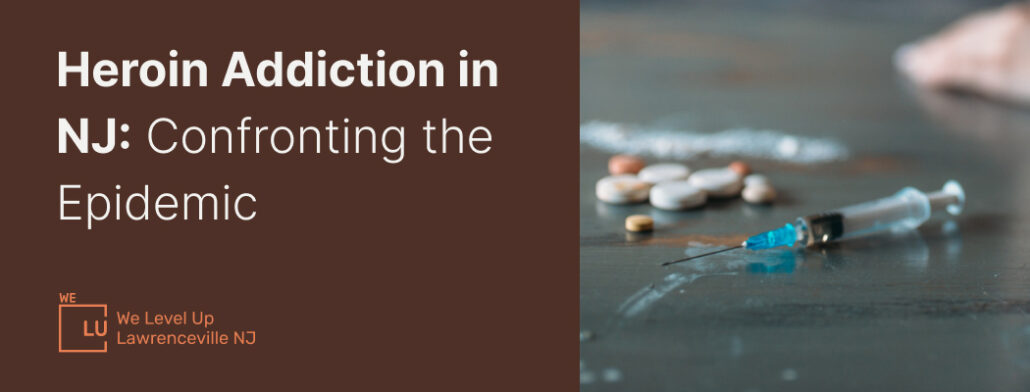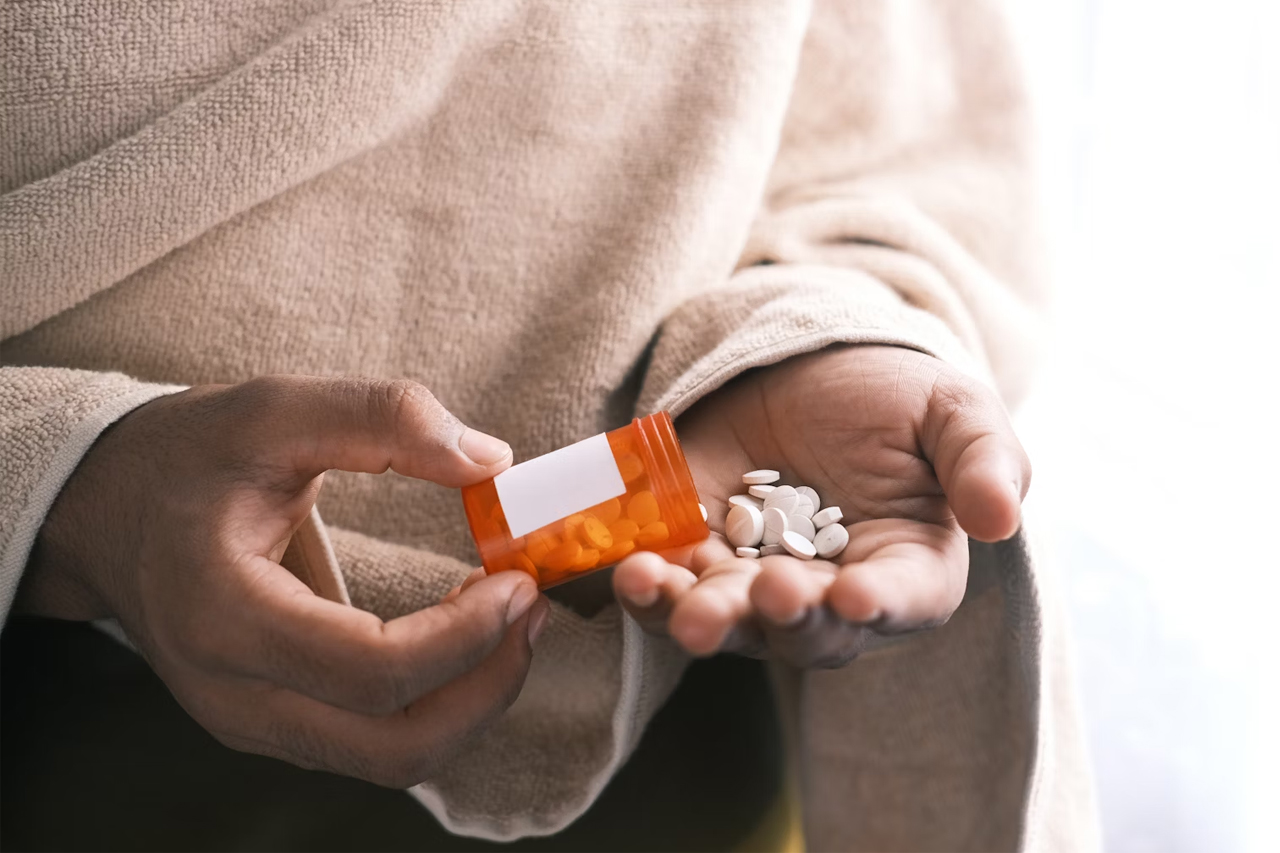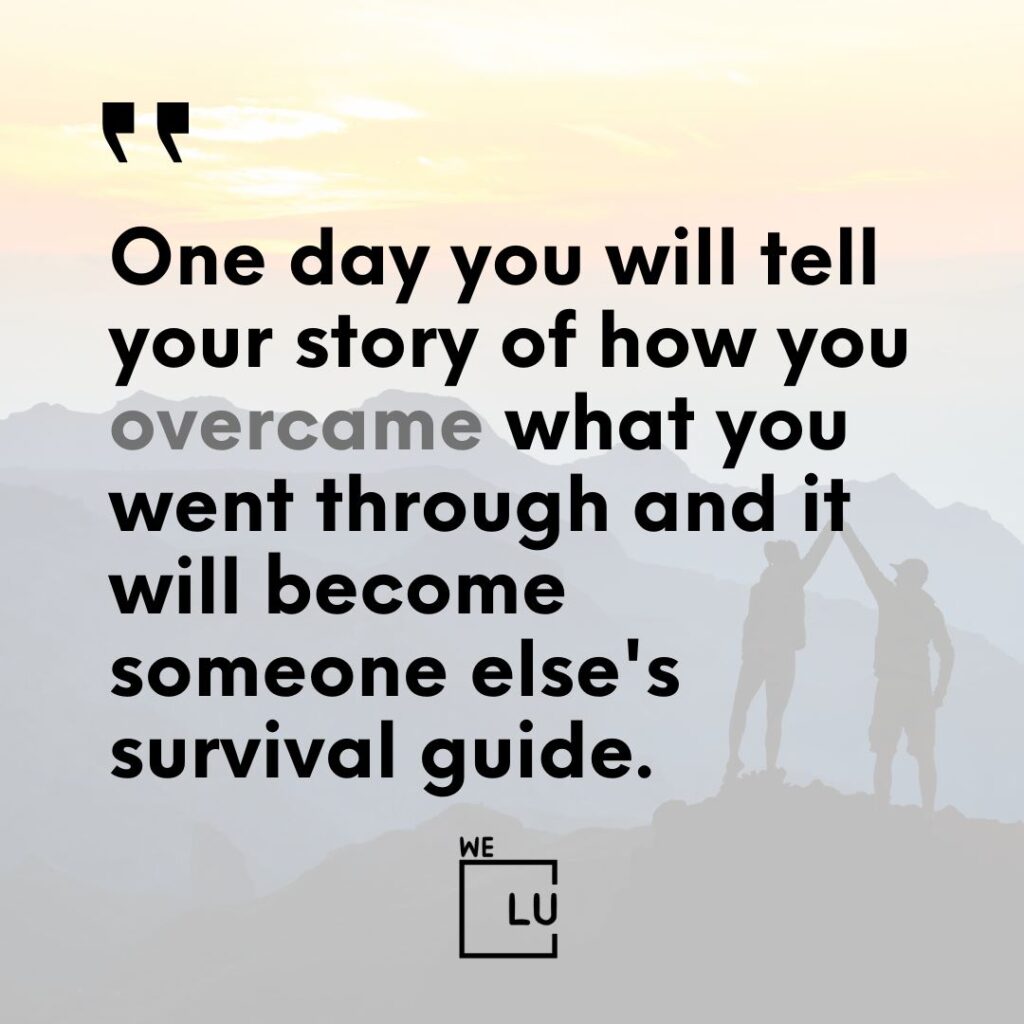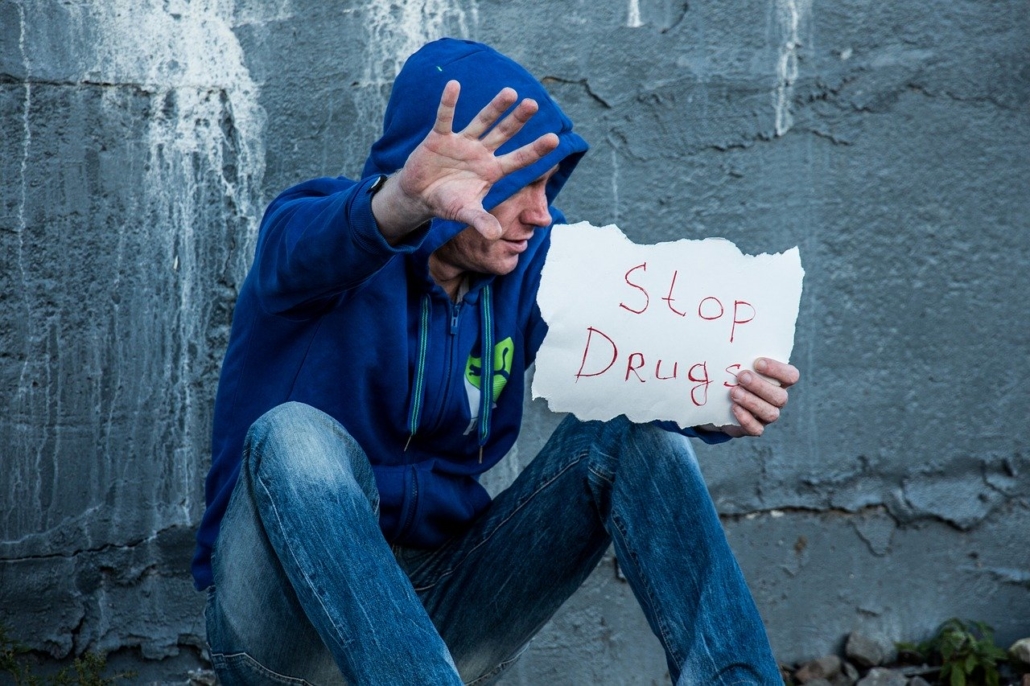New Jersey is dealing with a catastrophic heroin epidemic spread throughout the state. The widespread availability of heroin in the state poses a significant threat to both public safety and health. The issue affects a wide range of demographics, including urban, suburban, and rural communities, highlighting the critical need for effective intervention and treatment measures. Acknowledging the scope and gravity of the problem is critical as New Jersey confronts this catastrophe.
Skip to:
Things to know about heroin addiction in NJ
One of the key contributors to heroin addiction in New Jersey is the misuse of prescription opioids. People often start by using prescription medications like oxycodone and hydrocodone, which are legally prescribed for pain management. Over time, this can lead to dependency. People often turn to heroin as a cheaper and more accessible alternative, as the cost and difficulty of obtaining these prescription drugs increase.

But, what does heroin look like? Typically, heroin appears as a white or brown powder or as a black sticky substance. The white powder form is often the purest, but it can vary in color from white to beige depending on its purity and the substances it’s mixed with. The variation in heroin’s appearance is due to factors like its purity, the manufacturing process, and additives or cutting agents mixed with it. These additives, ranging from sugar and caffeine to more dangerous substances like fentanyl, can significantly alter its potency and increase the risk of overdose.
The issue of heroin addiction varies across different counties and demographics in New Jersey. New Jersey faces a significant challenge due to the widespread availability of opioids, including both illegal drugs like heroin and legal prescription painkillers. The state has some of the cheapest and purest heroin in the country, making it easily accessible.

A strong link exists between mental health problems and substance abuse, heroin addiction included. This connection complicates heroin addiction treatment in NJ, with numerous individuals seeking addiction help while battling mental health conditions. Moreover, the tendency for those with addiction issues to consume multiple substances at once heightens the likelihood of severe medical outcomes.
To combat this crisis, New Jersey has taken steps to increase the availability of Naloxone, a life-saving opioid-overdose reversing medication. A key part of the strategy to address heroin addiction are also Medication-Assisted Treatment (MAT) programs, combining FDA-approved opioid treatment medications with behavioral therapy.
Get Help. Get Better. Get Your Life Back.
Searching for Accredited Drug & Alcohol Rehab Centers Near You? Or Mental Health Support?
Even if you have failed previously, relapsed, or are in a difficult crisis, we stand ready to support you. Our trusted behavioral health specialists will not give up on you. Call us when you feel ready or want someone to speak to about therapy alternatives to change your life. Even if we cannot assist you, we will lead you wherever you can get support. There is no obligation. Call our hotline today.
FREE Addiction Hotline – Call 24/7Efforts to tackle heroin addiction in New Jersey involve a range of treatment options including inpatient and outpatient programs, detoxification, and various levels of care tailored to individual needs. The approach to addressing heroin addiction in New Jersey is multi-faceted, involving both prevention and treatment strategies, as well as efforts to reduce the stigma associated with addiction and increase access to care for those struggling with substance abuse disorders.
The impact heroin addiction has on families
As New Jersey faces the heroin addiction crisis, the families of people who are addicted face even greater challenges. Family members often experience stress, fear, and uncertainty. Families may experience emotional turmoil, as they struggle with feelings of guilt, anger, and helplessness. The addiction can lead to financial strain due to the costs associated with drug use and potential legal issues. Trust within the family can be severely damaged, and relationships may become strained or break down entirely.
Recognizing signs of heroin us becomes key for intervening early. Signs manifest physically as pupils that constrict, skin that flushes, and sleep patterns that change. Behavioral shifts like unexpected mood variations, pulling away from family and social gatherings, and disregarding duties often occur. Financial issues or valuables that go missing might suggest money redirected towards a drug habit. Awareness of withdrawal symptoms is also crucial; these can manifest as agitation, nausea, and profuse sweating, particularly if heroin use ceases abruptly.
Approaching the situation with empathy and understanding should be the priority for family members, who ought to seek professional help and support. Encouragement for the individual to pursue heroin addiction treatment in NJ, with offers of support through their recovery journey, stands as a positive initial step. The recommendation of heroin detox in NJ by medical professionals marks one of the initial actions an individual takes in overcoming heroin addiction. Facing this process can evoke fear, highlighting the critical need for family support. Benefiting from family therapy and support groups becomes evident in tackling the addiction’s wider effects on the family structure.
The risks associated with heroin can be life-threatening
Heroin is a drug that is very addictive and can cause problems right away and in the long term. When someone starts using heroin, their body quickly becomes dependent on it. This traps them in a circle of addiction that is notoriously hard to escape. The addictive nature of the drug makes this dependence even worse, as users have to take higher and higher doses to get the same high. This greatly increases the risk of a possibly fatal overdose. Heroin overdoses are especially dangerous because they can stop breathing and heart rate, which could put the person into a coma or even kill them.
Heroin addiction is particularly dangerous because its composition is hard to guess. Heroin is mixed with other drugs a lot of the time. Strong painkiller fentanyl mixed with heroin makes the risk of accidental overdose much higher. People who use heroin for a long time are more likely to get infectious diseases like HIV and hepatitis C from sharing drugs. They also have trouble breathing and damage to important organs. Using heroin for a long time is also very bad for your mental health. People who use drugs often have mental health problems and find it harder to keep up with friends and family and do their chores.

Get Your Life Back
Find Hope & Recovery. Get Safe Comfortable Detox, Addiction Rehab & Mental Health Dual Diagnosis High-Quality Care at the We Level Up Treatment Centers Network.
Hotline (877) 378-4154Treatment options for heroin addiction in NJ
In New Jersey, heroin addiction treatment comes in various forms. Residing within a treatment facility for a set time, typically ranging from 30 to 90 days, stands as one of the foremost treatment methods, known as inpatient rehabilitation. This intense program offers a regimented setting complete with medical oversight, therapeutic sessions, and support group meetings. Outpatient treatment programs present another choice, allowing individuals the flexibility to undergo treatment from home. The intensity of these programs varies, often encompassing group therapy, one-on-one counseling, and educational seminars.
To assist in managing withdrawal symptoms and diminishing cravings, Medication-assisted treatment (MAT) finds wide application, utilizing medications such as methadone, buprenorphine, and naltrexone alongside counseling and behavioral therapies. Detoxification programs, marking the treatment journey’s commencement, provide medical monitoring to safely oversee withdrawal symptom management.
Highlighting specialized programs designed for distinct demographics, like adolescents, women, or individuals facing co-occurring mental health issues, proves important. These tailored treatment solutions address the specific challenges these groups encounter.

Confronting heroin addiction and heroin epidemic in New Jersey
Confronting heroin addiction in New Jersey involves a combination of prevention, education, and treatment strategies. The state has implemented several measures to combat this growing epidemic effectively.
Enhancement of public awareness and education programs is one key strategy. Education programs focus on educating the public, particularly young people, about the dangers of heroin and opioid abuse. Schools and community centers across New Jersey are increasingly incorporating drug education into their curriculum and programs, aiming to prevent addiction before it starts.
The increased access to Naloxone, a life-saving medication that can reverse the effects of a heroin overdose, is another significant measure. Law enforcement officers and first responders are being equipped with Naloxone kits, and training is provided to use them effectively. This initiative has saved countless lives by providing immediate aid in overdose situations.
New Jersey has also expanded its prescription drug monitoring program. This program aims to reduce the misuse of prescription opioids, which often act as a gateway to heroin use. Health professionals can identify patterns of abuse and intervene earlier, by monitoring prescription drug use,
First-class Facilities & Amenities
World-class High-Quality Addiction & Mental Health Rehabilitation Treatment
Rehab Centers TourRenowned Addiction Centers. Serene Private Facilities. Inpatient rehab programs vary.
Addiction Helpline (877) 378-4154Proven recovery success experience, backed by a Team w/ History of:
15+
Years of Unified Experience
100s
5-Star Reviews Across Our Centers
10K
Recovery Success Stories Across Our Network
- Low Patient to Therapist Ratio
- Onsite Medical Detox Center
- Comprehensive Dual-Diagnosis Treatment
- Complimentary Family & Alumni Programs
- Coaching, Recovery & Personal Development Events
Prevention efforts in communities have been ramped up through various programs. These include community-based outreach programs providing resources and support to those at risk of heroin addiction. Additionally, there is a growing emphasis on supporting and training community health workers who can provide on-the-ground support and guidance in communities heavily impacted by heroin addiction.

Is recovery from heroin addiction achievable?
Recovery from heroin addiction is challenging but achievable. It requires a comprehensive approach encompassing therapy, support systems, and often, a complete lifestyle change. The path to recovery typically begins with detoxification. During this process the body is cleared of the drug under medical supervision to manage withdrawal symptoms effectively. Therapy plays a crucial role in the aftermath of detox. Therapy can include individual counseling, where patients explore the underlying causes of addiction and develop coping strategies. Group therapy also provides peer support and a sense of community.
Support systems are vital in the recovery journey. Family and friends can offer essential emotional support, understanding, and encouragement. Additionally, support groups like Narcotics Anonymous provide a platform for sharing experiences and learning from others who are facing similar challenges. These groups offer a sense of belonging and mutual support that is critical during recovery.
In New Jersey, centers such as We Level Up Lawrenceville NJ tailor comprehensive services for those recovering from heroin addiction. We deliver various therapeutic methods, including cognitive-behavioral therapy for altering detrimental thought processes and motivational interviewing to boost recovery motivation. Additionally, We Level Up NJ offers holistic approaches like art and music therapy, assisting in emotional articulation and healing.
Moreover, aftercare is a critical component of the recovery process, involving ongoing therapy and support to prevent relapse. We Level Up Lawrenceville NJ offers resources and programs for continued support, helping individuals maintain their sobriety and navigate the challenges of post-treatment life.
World-class, Accredited, 5-Star Reviewed, Effective Addiction & Mental Health Programs. Complete Behavioral Health Inpatient Rehab, Detox plus Co-occuring Disorders Therapy.
CALL (877) 378-4154End the Addiction Pain. End the Emotional Rollercoaster. Get Your Life Back. Start Drug, Alcohol & Dual Diagnosis Mental Health Treatment Now. Get Free No-obligation Guidance by Substance Abuse Specialists Who Understand Addiction & Mental Health Recovery & Know How to Help.
Preventing heroin addiction
Stopping heroin addiction stands as a crucial aim for public health, achievable through combining education, engagement within communities, and policy-making efforts. Education, widely cast, especially towards the young, emerges as a key strategy. The responsibility falls on schools and community groups to deliver programs and workshops. These initiatives aim to enlighten regarding the perils of heroin, its addictive potential, and the toll it takes on physical and mental well-being. The goal of such educational pursuits is to arm individuals with the knowledge and capability to choose wisely and navigate peer influence effectively.
Community-based approaches are also essential in preventing heroin addiction. Local health departments often organize outreach programs that provide resources and support to at-risk populations. By addressing broader social and economic factors that contribute to drug abuse, such as poverty, unemployment, and a lack of recreational facilities, these community initiatives help mitigate the conditions that often lead to substance abuse.
Public health policies play a significant role in prevention. This includes regulating the prescription of opioids, which are often a gateway to heroin use. Ensuring that healthcare providers follow guidelines for prescribing opioids and providing them with training on identifying and managing substance abuse can reduce the availability of these drugs for non-medical use.
Lifting the stigma of addiction is crucial in prevention efforts. Public awareness campaigns that shift the perception of addiction from a moral failing to a health issue can encourage individuals to seek help before turning to substances like heroin.
Addressing heroin overdose
Addressing heroin overdoses is a critical health emergency due to its potentially fatal consequences. A heroin overdose can depress breathing and heart rate, leading to unconsciousness, coma, or even death. The risk is heightened when heroin is mixed with other substances, like fentanyl, a synthetic opioid far more potent than heroin itself. Immediate recognition of overdose symptoms, such as shallow breathing, disorientation, and blue lips or fingernails, is vital for a timely response.
Preventive measures are crucial in reducing the incidence of heroin overdoses. These include public awareness campaigns about the dangers of heroin use, proper prescription drug management to prevent the initial slide into opioid abuse and broader access to opioid antagonists like Naloxone. Naloxone can reverse the effects of an overdose if administered promptly, making its availability crucial in public spaces and homes of individuals known to use opioids.
In the event of a suspected heroin overdose, the first step is to call emergency services immediately. If available, administer Naloxone while waiting for medical help. Continuous monitoring of the individual’s breathing and consciousness level is essential, as multiple doses of Naloxone may be required.
Support for people and families
The process of healing from heroin addiction is a journey that profoundly affects not only the individual but also their family and community. It’s a path that demands a deep understanding of the emotional and psychological toll addiction takes on loved ones. Families often grapple with complex emotions, from confusion and fear to guilt and despair. Offering targeted support through counseling, support groups, and educational resources is vital. These tools empower them with knowledge and coping strategies, enabling them to become resilient support pillars for their recovering family members.
Communities can create environments that foster recovery, characterized by empathy and an absence of judgment. Such a climate not only assists individuals in their recovery journey but also works towards dismantling the stigma that often shadows addiction. Community-driven initiatives like local support groups and public awareness forums are instrumental. They cultivate a sense of belonging and shared responsibility, reinforcing that recovery is not just an individual struggle but a collective endeavor.
Prevention and timely intervention is key for battling heroin addiction in NJ
From understanding the risks of heroin overdose and the symptoms of heroin withdrawal, to recognizing the need for tailored detox and recovery programs, each aspect plays a critical role. The effectiveness of confronting this epidemic lies in education, prevention, timely intervention, compassionate support, and ongoing community involvement. By addressing each of these areas with dedication and understanding, New Jersey can continue to make strides in battling the heroin crisis, ultimately leading to healthier communities and the saving of more lives.
Experience Transformative Recovery at the We Level Up Treatment Center.
See our authentic success stories. Get inspired. Get the help you deserve.



Start a New Life
Begin with a free call to an addiction & behavioral health treatment advisor. Learn more about our dual-diagnosis programs. The We Level Up treatment center network delivers various recovery programs at each treatment facility. Call to learn more.
- Personalized Care
- Caring Accountable Staff
- World-class Amenities
- Licensed & Accredited
- Renowned w/ 5-Star Reviews





